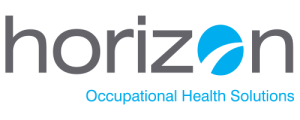
The legalization of recreational use of cannabis (aka marijuana) in Canada has caused a huge boom in media coverage, online chatter, and everyday interest across the country. But despite this onslaught of coverage and conversation, organizations are left without solution to the looming question of workplace safety post-legalization. So how are employers supposed to protect their workers and themselves when the community discussing the legalization of cannabis hasn’t yet found a clear path to resolution?
The development of a strong defendable cannabis specific drug and alcohol policy is the first line of protection for employers regarding workplace safety. But the next and more critical step to mitigating risk when it comes to the safety of employees – in relation to recreational use of cannabis products – is understanding the implications that legalization will have in the workplace. It seems that the challenge for Canadian organizations will not be the detection of cannabis itself, but rather the assessment of work-related impairment from it. For example, at present we have a very clear understanding of the relationship between blood alcohol and its effects on work performance. But unlike alcohol, the detection of cannabis use and its association with physical and/or mental impairment is far more complicated making it all the more important to understand the physical and cognitive demands of occupations and specific occupational tasks.
To develop Bona Fide Occupational Requirements (BFOR), organizations work closely with their OHS service provider to determine and isolate the physical and cognitive demands and risks of specific occupational tasks.
In addition to the difficulty of measuring levels of impairment from use of cannabis, employers are limited in their ability to test employees for drug and alcohol use. With cannabis legalized, employers still have the right to prohibit it in the workplace. However, as the “Final Report” written by the Marijuana Task Force rightly indicates, human rights should not be infringed upon through drug and alcohol testing. Testing can only be rightly used if it is to satisfy a previously established Bona Fide Occupational Requirement (BFOR), otherwise known as the physical and cognitive risks of specific occupational tasks. The challenge facing employers, therefore, is that very few organizations currently have a BFOR in place. If the short-term, and especially long-term, effects of cannabis use overlap with the critical tasks of a safety sensitive occupation the employer might not have the rights to request a drug test. However, testing could be carried out if the employer had a BFOR that represented the critical demands of the occupation and could prove that the recognized effect of cannabis use would affect the employee’s performance.
While the majority of OHS service providers look to simply update and/or develop policy, at Horizon we begin by supporting organizations with Job Demands Analysis (JDAs) to assure that they have a full and complete understanding of the physical and cognitive demands associated with an occupation. Subsequently, we work with those organizations to assure that the necessary procedures are in place to develop legally defendable BFOR to ensure a safe workplace environment for safety sensitive occupations.
At present, a significant number of employers are not aware that JDA processes/procedures are not adequate enough to develop legally defendable BFORs. The Canadian Government has outlined specific steps which must be first completed before a job or task can become bona fide. Developing drug and alcohol policies without understanding the physical and mental demands of each occupation within an organization will lead to a significant vulnerability of the employer to both medical and recreational cannabis use.
Since the responsibility of ensuring a safe workplace falls on the employer, understanding the potential long and/or short-term physical and mental effects of cannabis use is not enough. The best and only approach available to employers leading up to such a monumental shift in workplace health and safety will be to work closely with companies like Horizon to first complete stringent JDAs to isolate which safety sensitive occupations are vulnerable to the recognized effects of cannabis use and subsequently ensure they are bona fide. This will allow the organization to develop strong individualized alcohol & drug policies to ensure the safety of its workers. If meaningful impairment can be proven and employers duty to accommodate has been meet, an employer may be able to enforce a zero-tolerance policy regarding marijuana usage for that job. This approach has nothing to do with discrimination, and everything to do with mitigating risk.
At Horizon we provide a range of solutions to protect against impairment in the workplace. Contact us to learn more.
For references, click here.

